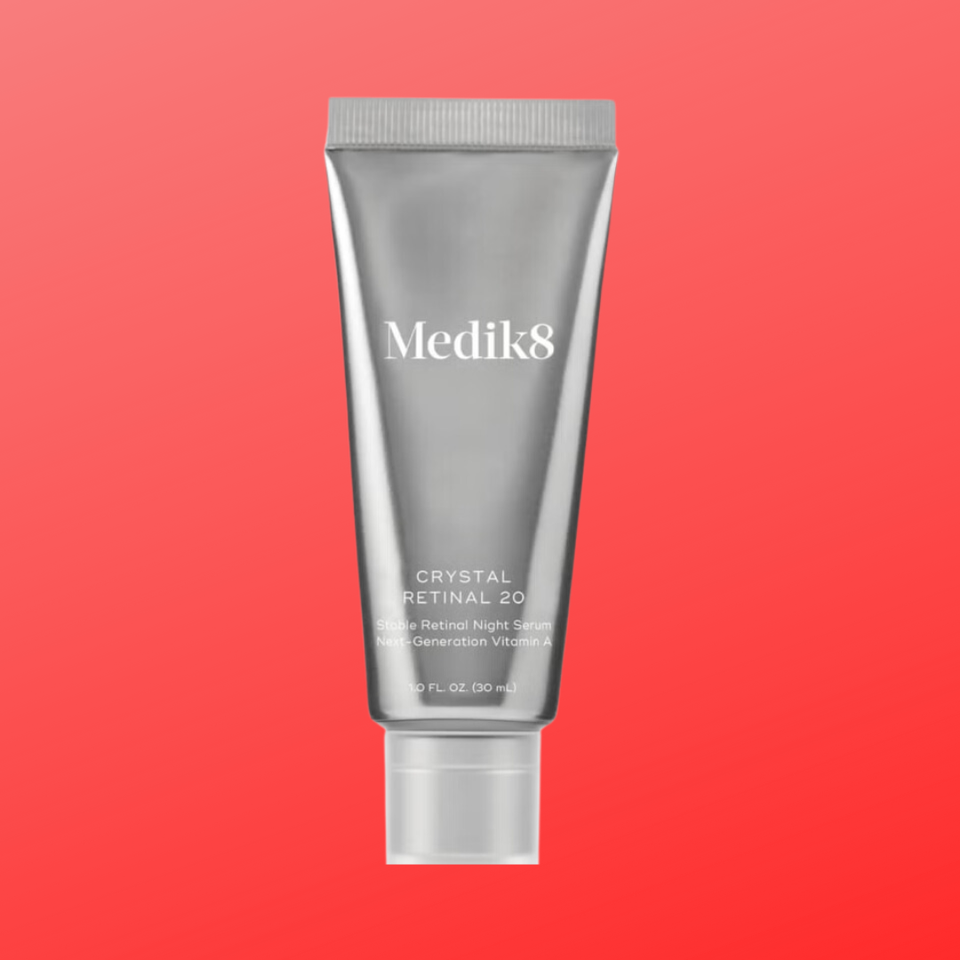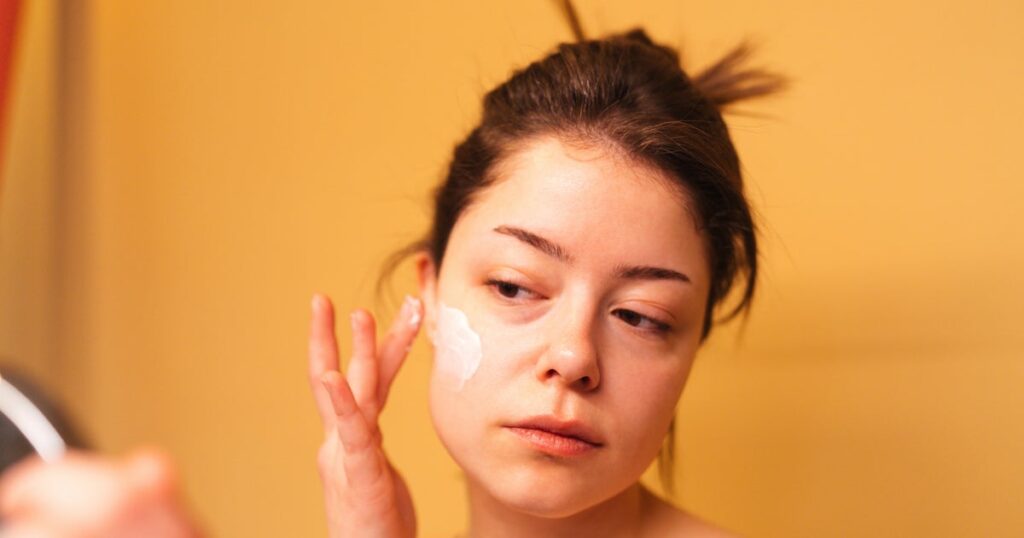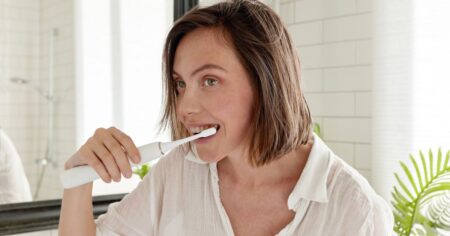Known for tackling everything from acne to wrinkles, retinol has earned its reputation as a powerhouse anti-aging skin care ingredient. But there’s a lingering rumor that this form of vitamin A can thin the skin, causing some to hesitate to incorporate it into their regimen.
We spoke with dermatologists to explain what’s really happening, and whether you need to worry.
How The Rumor Started
The idea that retinol thins your skin likely comes from some of the short-term side effects it causes when you first start using it. During the initial adjustment phase, known as retinization, you may experience some peeling, flaking and increased sensitivity, which can give the impression of thinner or more fragile skin.
In reality, retinol’s doing some behind-the-scenes magic. “Retinol increases cell turnover and exfoliation, leading to a smoothing of the stratum corneum, the outermost layer of dead skin. However, this does not mean the skin is thinning in a harmful way — quite the opposite,” explained Dr. Pooja Rambhia, board-certified dermatologist at UnionDerm.
It’s also worth noting that retinol doesn’t exfoliate in the traditional sense. Dr. David Johnson, board-certified dermatologist and co-founder of RedliteX, compares exfoliation to sweeping your porch. “You’re really just removing dead skin cells off of your skin’s surface. It makes your skin smooth, but only temporarily,” he said.
Retinol, on the other hand, goes deeper, working below the surface to speed up your skin’s natural renewal process. “It instructs your skin to produce more cells quicker and to grow more collagen,” he said of skin cell turnover, referring to the way new cells form deep down and rise to the top while shedding old dead cells.
How Retinol Fuels Collagen Production
Collagen plays a major role in keeping your skin looking and feeling its best. It’s the structural protein that acts like scaffolding beneath the surface.
“It forms a dense, mesh-like network that provides firmness, support and three-dimensional architecture to the skin,” Rambhia explained. As collagen naturally declines with age, retinol works to maintain its levels. “Retinol helps counteract this decline by stimulating fibroblasts to produce new collagen, preserving skin thickness, firmness and overall skin health,” Rambhia said.
AleksandarNakic via Getty Images
What Actually Causes Skin Thinning
While genetics plays a big role in determining the thickness of your skin, several other factors influence it over time. “As we age, we generally lose about 1% of collagen per year and experience elastic degradation, slower cell turnover, reduced fat in the hypodermis, and greater visibility of blood vessels and broken capillaries,” explained dermatologist and dermatologic surgeon Dr. Anetta Reszko. “Estrogen decline associated with post-menopausal women can [also] drive a loss of up to about 30% of collagen in skin within the first five years.”
On top of that, your skin also starts to produce less oil as the sebaceous glands slow down, which can leave it drier and less supple. The growth factors that help your skin regenerate start to drop off, too. And lifestyle habits play a role. “Prolonged UV exposure can thin the epidermis and damage the dermis, while smoking and chronic stress can also damage skin and thin skin over time, respectively,” Reszko added.
How Retinol Thickens The Skin
When applied topically, retinol is converted into retinoic acid, the active form your skin cells use to initiate skin cell turnover. “In healthy skin, this cycle typically takes around 28 days, but retinol may shorten it to approximately 14 to 16 days, especially with consistent use over time,” Rambhia explained.
Retinol works across multiple layers of your skin to help key processes sync up, starting with the stratum corneum, where it initially thins this outer layer by loosening the bonds between dead skin cells and speeding up their shedding.
Just below that sits the epidermis, the living layer of skin beneath the surface. At its base is the basal layer, where retinol gets to work speeding up the production of new skin cells called keratinocytes. These fresh cells move upward over time, eventually becoming part of that top protective layer. “[Retinol] normalizes abnormal keratinization patterns, improves cellular maturation and enhances barrier function over time,” Rambhia said. “This leads to a healthier, more functional epidermis.” With consistent use, your skin becomes smoother, stronger and more resilient, with the bonus of a more even tone.
“Retinol has its most profound long-term effects in the dermis, where it activates fibroblasts to increase production of structural proteins like collagen and elastin,” said Rambhia, referring to the compounds that keep this middle layer of skin firm and flexible. Often considered the skin’s foundation, the dermis provides strength, structure and essential support. “It also enhances production of glycosaminoglycans, including hyaluronic acid, and improves the organization of the extracellular matrix,” she added, pointing to the ingredients that keep skin plump and hydrated. As retinol reorganizes and reinforces this deeper layer over time, the dermis thickens, one of the major reasons it helps smooth fine lines, boost firmness and strengthen your skin’s natural defenses against environmental stressors.
Rambhia points out that retinol also strengthens the dermal-epidermal junction, the glue between your skin’s layers, by increasing production of anchoring fibrils, tiny structures that tighten the connection between them. This improved communication helps your skin work more cohesively, keeping it structurally sound and functioning at its best. “The paradox of retinol is that while it initially appears to thin the outermost dead layer through exfoliation, it simultaneously builds up and strengthens the living layers beneath, resulting in healthier, more resilient skin over time.”
Looking for a good over-the-counter retinol? These are the strongest you’ll find.
HuffPost and its publishing partners may receive a commission from some purchases made via links on this page. Every item is independently curated by the HuffPost Shopping team. Prices and availability are subject to change.

Dermstore
Medik8 Crystal Retinal 20 (0.2% retinal)
This cream is the highest run on Medik8’s Crystal Retinal ladder, boasting 0.2% retinal (if you’re wondering about the difference between retinol and retinal, read this). It’s for the most advanced skin care lovers and has double the concentration of the previous highest strength. It’s as good as it gets.

Dermstore
SkinCeuticals Retinol 1.0 maximum strength refining night cream (1.0% retinol)
In previous HuffPost reporting, Dr. Deanne Mraz, a board-certified dermatologist at Modern Dermatology in Connecticut and an assistant clinical professor of dermatology at Yale School of Medicine, thinks the varying retinol strengths available make this cream a great option for “anyone who needs to downshift to a gentler strength in the cold, dry winter months and turn up the volume [spring through fall].”

Skin Better Science
SkinBetter Science AlphaRet overnight cream (1.0% retinol)

Sephora
Youth To The People Retinal + Niacinamide Youth Serum (0.15% retinal)
This highly-rated and oft-reviewed serum utilizes retinal, niacinamide and ceramides to not only improve the look and feel of skin texture and and common signs of aging, but also reinforce the skin’s barrier, smooth skin, even tone and moisturize. It’s a powerhouse combo in the form of a lightweight serum that won’t feel heavy. It contains .15% retinal, significantly more than most traditional retinol-based products on the market.

Amazon
A313 cream (0.12% retinol)
Amazon reviewer Jessica said she “ordered this after hearing about it from an aesthetician. It has a vaseline-type texture when it goes on. So a little goes a long way. You can definitely feel it tingling after you put it on. It works, but I personally cannot use it more than 2-3 times per week or my skin gets irritated. When I use it regularly, my hyperpigmentation is much better and so are my fine lines and wrinkles. It is definitely worth a try, but if you have sensitive skin, I recommend you start with a small amount and only once or twice a week at most!”

Dermstore
La Roche-Posay Effaclar Adapalene Gel 0.1% Retinoid Acne Treatment (0.1% retinol)
This popular and affordable La Roche-Posay treatment is made with adapalene, a prescription-strength retinoid that is primarily used to treat acne, but also has all the other benefits of a traditional retinol. It’s incredibly effective and one of only two FDA-approved prescription-strength retinoid acne treatments, along with Differin, that can be purchased over the counter. I used adapalene for years before switching to retinol and tretinoin and found it to be incredibly effective.

Dermstore
Avène Retrinal 0.1 Intensive cream (0.1% retinaldehyde)

Target
Differin adapalene gel 0.1% acne treatment (0.1% adapalene)

Amazon
Naturium Retinaldehyde cream serum (0.1% retinal)

Dermstore
Allies of Skin Retinal & Peptides Repair night cream (.05% retinaldehyde)
This cream harnesses the power of retinal in combination with peptides, antioxidants and botanicals to nourish the skin while deeply infusing it with all the benefits of powerful, high-quality retinal. It’s uniquely balanced to be as effective as possible while also being gentle on the skin, making it a great option for those with sensitive skin who want to dip their toes into the strong retinol waters.
Read the full article here








